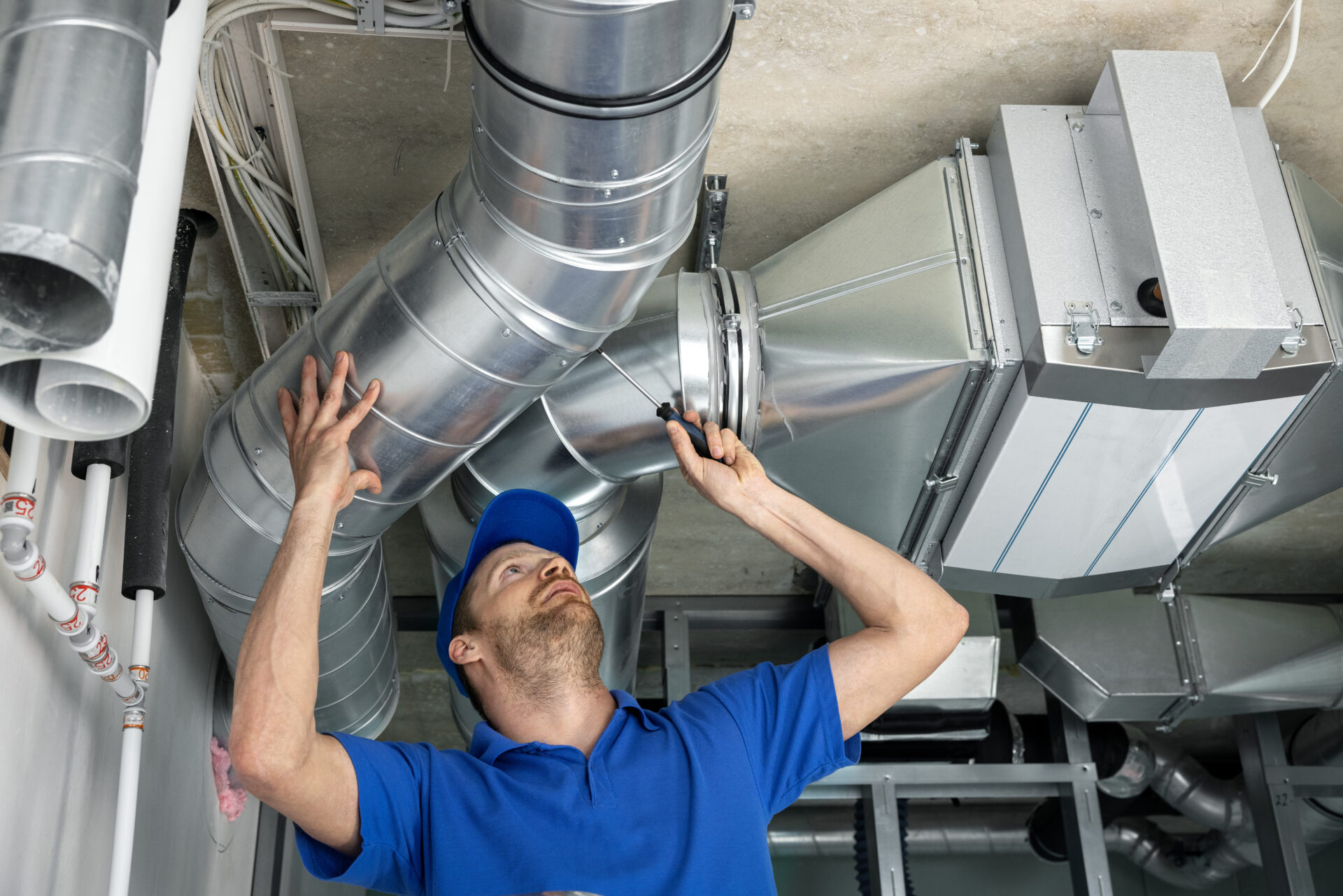Air conditioning, commonly known as HVAC, plays a essential role in maintaining comfortable indoor environments in both residential and corporate spaces. As you walk through any house, you might not think twice about the systems working quietly behind the background to ensure that the air is at a pleasant temperature and purity. However, understanding the principles of heat transfer that govern these systems can greatly enhance our capability to manage them efficiently.
In this guide, we will delve into the theory of HVAC, uncovering how these systems operate and why they are indispensable. From fundamental concepts for newcomers to tips on effective maintenance and energy usage, we will explore various aspects of HVAC systems. Whether you're planning an upgrade, looking to enhance indoor air quality, or simply wanting to minimize your energy bills, this text will provide the essential knowledge you need to make smart decisions about your heating and cooling systems.
Grasping HVAC Systems
HVAC, Cooling, and Heating , typically called HVAC, serves as an essential technology used for providing a comfortable atmosphere in enclosed environments. At air duct cleaning , an HVAC setup works by controlling the thermal conditions, dampness, and air quality of spaces in homes and commercial buildings. It accomplishes this through a collection of integrated components that carry out the required functions of heating, cooling, and breathability. Whether it’s a residential setting or a spacious corporate facility, understanding how these mechanisms operate is essential for effective environmental management.
The main components of an HVAC setup comprise the heat source, cooling unit, air exchange system, and the thermostat. Heating can come from various options, including heating units, thermal pumps, or thermal vessels, which generate heat during frigid periods. For cooling, cooling units or devices like thermal pumps are used to extract warm air from enclosed atmosphere, providing a cool atmosphere in the hot season. Air exchange plays a crucial part in ensuring fresh air circulates through the location, helping to preserve air quality and remove floating contaminants.
Moreover, appropriate maintenance is crucial to guaranteeing HVAC systems work smoothly and last for extended periods. Regular maintenance checks can pinpoint frequent concerns such as clogged screen filters or refrigerant escapes before they develop into more major concerns. Understanding how these mechanisms work not only enables homeowners and corporate leaders make informed judgments about use and maintenance but also enables them to create comfortable residential and working environments year-round. spintax #### Typical HVAC Issues and Remedies
Homeowners often face a range of HVAC issues that can disrupt convenience and efficiency. One common problem is insufficient heating or cooling. This can occur due to a malfunctioning thermostat, clogged ducts, or low refrigerant levels. To tackle this problem, start by checking the thermostat settings and changing batteries if needed. Next, examine and clean air filters and ensure that vents are unobstructed. If problems persist, it may be required to call a qualified technician to check for refrigerant leaks or system malfunctions.
Another regular concern is unwanted noise produced from the HVAC system. Noises like rattling, grinding, or hissing can indicate various issues, from loose components to failing motors. Homeowners should initially examine the outside unit for any debris that might be causing vibrations and ensure all screws and fasteners are tight. If the noise is severe or continuous, it is recommended to seek professional help to identify and fix the underlying issue, as ignoring it can lead to more serious damage.
Finally, poor indoor air quality is an issue that many do not recognize as directly related to HVAC systems. Problems such as dust buildup and allergens can stem from dirty air filters or inadequate ventilation. To improve air quality, routine maintenance is crucial, including frequent filter changes and duct cleaning. Installing air purifiers and choosing the right filters for your system can greatly enhance indoor air quality and overall comfort in the home.

Energy Effectiveness and Innovations in HVAC
The HVAC sector has seen major advancements in energy effectiveness, primarily due to the increasing requirement for sustainable solutions. Modern systems are engineered to maximize energy consumption while ensuring comfort in homes and commercial structures. Innovations such as adjustable speed motors, zoned heating and cooling, and sophisticated heat exchangers enable HVAC systems to operate more efficiently, reducing power use and lowering energy costs.
Smart technology integration is another key innovation driving energy efficiency in HVAC units. Smart thermostats and home automation systems provide homeowners with unmatched control over their warmth and air conditioning preferences. These devices can adapt to user habits, modify settings on their own based on presence, and provide real-time energy consumption information, all contributing to a more effective HVAC functioning. As intelligent gadgets continue to advance, they will take an increasingly critical role in energy efficiency.
Additionally, alternative energy solutions, such as solar-powered HVAC units, are changing the field. These units harness solar energy to reduce reliance on conventional power options, offering both environmental benefits and cost savings. Geothermal heating and cooling is another innovative solution, utilizing the earth's constant temperature to provide efficient climate control. As these technologies become more accessible, residents and businesses can make educated choices that align with their commitment to sustainability and resource conservation.
